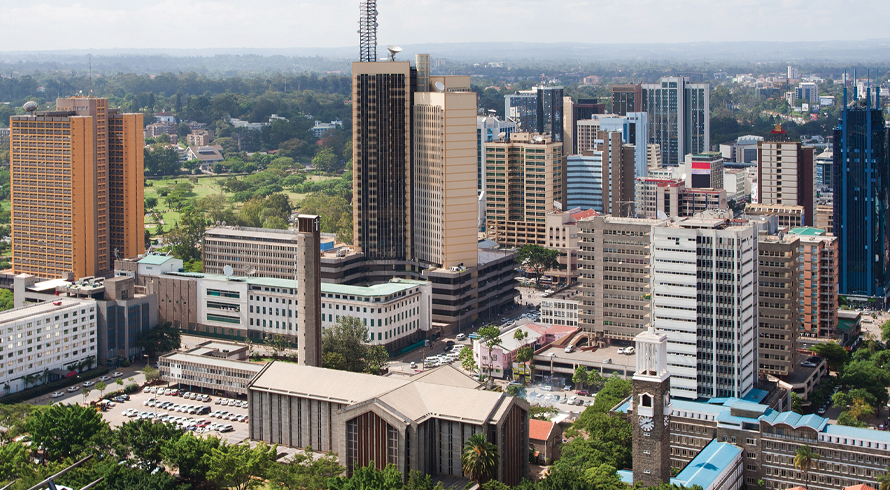Increasing climate change litigation risks: A focus on the private sector
At a glance
- The Global Climate Litigation Report: 2023 notes how alleged insufficient progress under Paris Agreement commitments is prompting parties to seek relief against both public and private actors to compel them to implement more ambitious actions against climate change.
- South Africa is a signatory to the Paris Agreement, having committed to achieving net-zero emissions by 2050 in its Nationally Determined Contribution (NDC). Although the NDC is not enforceable against corporations locally, it does become the yardstick against which potential litigants assess mitigation and adaptation efforts of government and, as evident from the Report, corporations.
- Both Government and the private sector have to manage the need to recover the South African economy with mitigating climate impacts and aligning, as best possible, to global developments. It is a delicate balancing act, where socio-economic constraints continue to limit the option or pace of decarbonisation, while the impacts of climate change persist in aggravating socio-economic challenges.
Touching on the highlights from a total of 2,180 cases filed in over 65 jurisdictions, as at the end of 2022, the Report notes how alleged insufficient progress under Paris Agreement commitments is prompting parties to seek relief against both public and private actors to compel them to implement more ambitious actions against climate change, be it mitigation or adaption, or both.
In relation to the private sector specifically, categories of legal challenges worth noting include:
- Failure of corporations to mitigate their greenhouse gas emissions.
- Breach of a “corporate duty of care” under the Paris Agreement.
- Liability of financial institutions for the climate impact of investments.
- Liability for fraudulent or misleading climate risk disclosures to investors.
- Complaints against alleged corporate “greenwashing”, including net-zero claims.
Recourse to judicial bodies is also anticipated to increase in areas such as climate attribution, transnational responsibility, and cases brought by vulnerable groups, all of which pose a real risk of liability or business risks for corporations.
Relevance to South Africa
South Africa is a signatory to the Paris Agreement, having committed to achieving net-zero emissions by 2050 in its Nationally Determined Contribution (NDC), as updated in September 2021. Although not enforceable against corporations locally (noting that the contrary was decided by the Hague District Court in the case of Milieudefensie et al. v Royal Dutch Shell [2022]), the Paris Agreement and NDC do become the yardstick against which potential litigants assess mitigation and adaptation efforts of government and, as evident from the Report, corporations.
This risk will become even more heightened once the Climate Change Bill [B9-2022] is promulgated, as it will hard-code climate change response obligations, including sectoral emission targets, climate change response implementation plans and carbon budgets.
Together with global investment pressures and local corporate governance and reporting requirements, South Africa’s NDC commitments have been adopted by the private sector. Businesses are committing to (potentially optimistic) internal carbon neutrality targets as part of their ESG strategy, and are marketing and disclosing ambitious achievements in this regard. As highlighted in the Report, these commitments or reported successes could, from a climate change perspective, become the basis for legal action by various stakeholders such as civil society, investors and lenders.
This risk is also amplified in the South African context, where mitigation and adaptation efforts are often constrained by preferent social and economic obligations, in line with South Africa’s peak, plateau, decline approach under its “just transition” global stance to decarbonisation. As captured in our NDC:
“South Africa’s NDC will be implemented in a context in which significant development challenges need to be addressed. Low economic growth over the last decade has been accompanied by high levels of unemployment and persistent poverty and inequality …
An assessment of equity also needs to take into account means of implementation. Generally, South Africa needs time for sustainable development, which is necessary to eliminate poverty, reduce inequality, increase employment and promote inclusive economic growth, while simultaneously seeking to contribute to mitigation and assist our vulnerable communities in adapting to climate impacts.”
This was reinforced by President Cyril Ramaphosa during the 2023 State of the Nation Address when he stated that “we will continue the just transition to a low carbon economy at the pace our country can afford and in a manner that ensures energy security”.
The interdepedence between socio-economic growth and climate change responses is being acutely felt in South Africa. Bringing the private sector squarely into play in terms of its role in contributing to South Africa’s decarbonisation need, the Framework for a Just Transition in South Africa, published in June 2022, highlights that:
“It is in South Africa’s national interests to join the world in combating climate change, in accordance with national circumstances and development priorities. This is not only an environmental imperative, but an economic one too, as countries around the world start to shift toward low-emissions policies, affecting global trade as well as demand for goods and resources.”
A balancing act
Government and the private sector are evidently, on the one hand, faced with the need to recover the South African economy, and, on the other, to mitigate climate impacts and align, as best possible, to global developments. It is a delicate balancing act, where socio-economic constraints continue to limit the option or pace of decarbonisation, while the impacts of climate change persist in aggravating socio-economic challenges. This is further complicated in light of South Africa’s severe electricity security crisis and need for an established baseload source to facilitate renewable electricity development. Ultimately, in all instances, the risk of litigation persists as both action and inaction could tip the scale.
Although only nine climate change-related cases are reported to have been brought before the South African courts (the majority of which relate to the establishment of proposed fossil fuel electricity generation projects in response to Government’s call for additional and much needed electricity capacity), the Report serves as a reminder to the private sector that the impending risk of increased litigation needs to be understood and managed. Moreso, because globally climate change is regarded as a human rights issue which companies may be held liable for violating if their own activities have negative impacts on human rights. As such, climate change commitments, disclosures and actions must therefore be made and undertaken responsibly, preferably with the advice of legal counsel, with due regard to their potential legal implications.
The information and material published on this website is provided for general purposes only and does not constitute legal advice. We make every effort to ensure that the content is updated regularly and to offer the most current and accurate information. Please consult one of our lawyers on any specific legal problem or matter. We accept no responsibility for any loss or damage, whether direct or consequential, which may arise from reliance on the information contained in these pages. Please refer to our full terms and conditions. Copyright © 2026 Cliffe Dekker Hofmeyr. All rights reserved. For permission to reproduce an article or publication, please contact us cliffedekkerhofmeyr@cdhlegal.com.
Subscribe
We support our clients’ strategic and operational needs by offering innovative, integrated and high quality thought leadership. To stay up to date on the latest legal developments that may potentially impact your business, subscribe to our alerts, seminar and webinar invitations.
Subscribe




